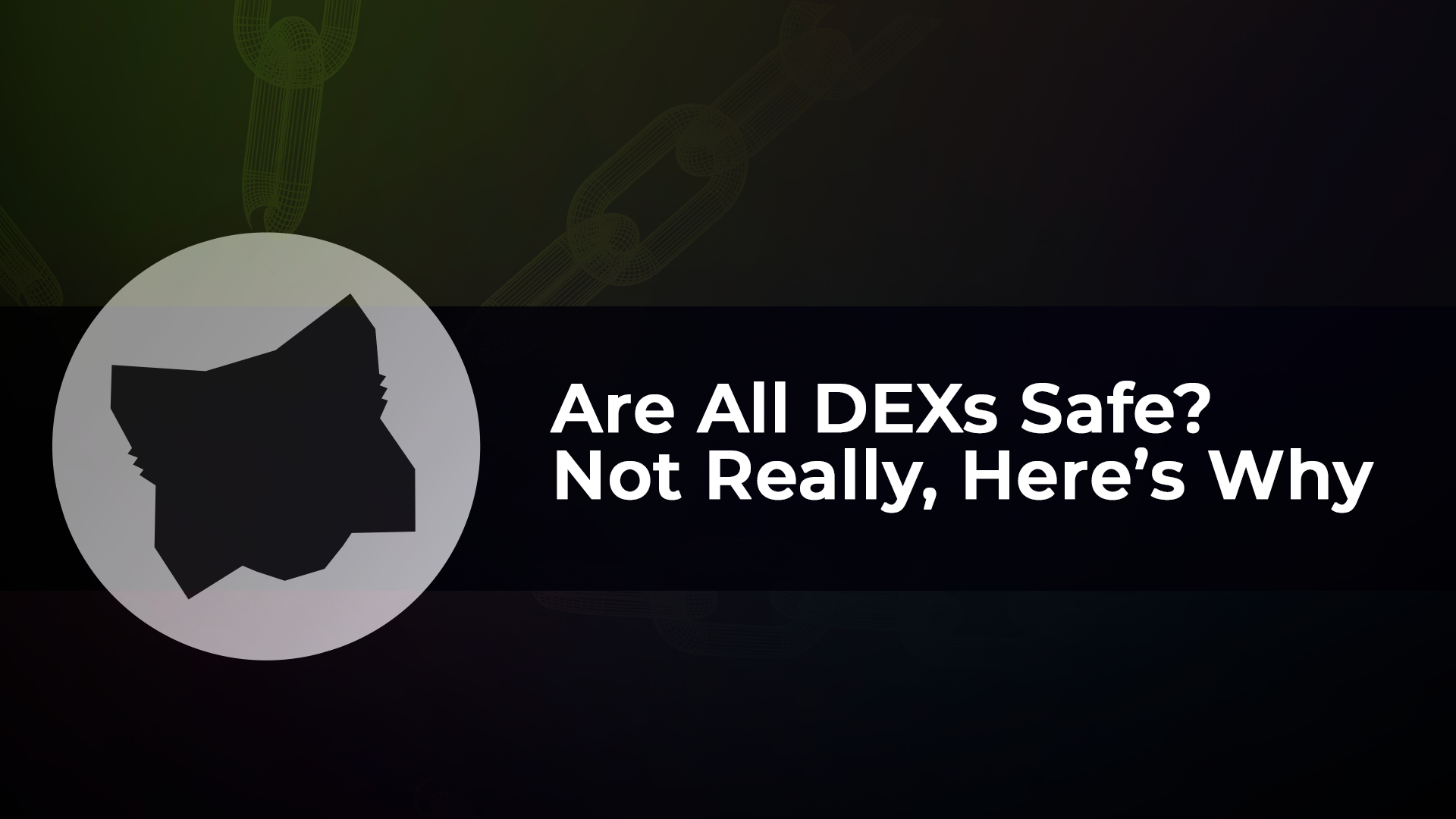
Are All DEXs Safe? Not Really, Here’s Why The secret’s in the hot sauce… or, in this case, hot wallet! by Danny Lim
Just last week, things in the crypto world suddenly got really heated. If you still don’t know what we’re talking about by now, you’re probably living under a rock.
Basically, one of crypto’s largest exchanges, FTX, went bankrupt [1] within days. Binance did offer to acquire it but retracted their offer within hours of the news because the FTX accounts looked like a hot mess. And, now, SBF is screwed and scrambling to build liquidity for all FTX depositors.
Ring a bell now?
And, because of this fiasco, “not your keys, not your coins” is the most heard phrase on the cryptoverse today.
This means a few things: there has been an overwhelming loss of faith in centralized networks, and industry leaders are now urging all users to withdraw their funds from centralized exchanges.
Don’t just take our word for it, look at the evidence — there has been a sudden spike in trading volume within various decentralized exchanges (DEXs), such as dYdX, Uniswap and GMX.
But, one of the most common questions now among all the FUD is, are DEXs even safe? How do we trust a trustless platform? Can’t they still be hacked? No centralized authority = danger?
To answer the first question, yes. DEXs are primarily safe because they in and of themselves cannot control your funds, and your funds will always be stored in your non-custodial wallet.
However, there’s a catch. And here’s where it matters. How safe your funds are depends on the wallet you use.
One of the most popular non-custodial wallets today happens to be a browser-integrated wallet, due to its simple user interface and ease of integration with multiple exchanges, websites and blockchains. And, if you follow the news closely, you’ll realise that more wallets are doing the same thing of launching browser extensions just to make things more convenient for users.
The worrying thing here is that everyone uses the browser to do almost everything these days — to surf the Internet, watch videos, reply emails, and even trade. Just a click of a link might compromise your browser, which leads to a high chance of your browser-integrated wallet getting hacked.
Thus comes our advice: separate your wallet from the browser. There are various ways to do this, including using a hardware wallet or a paper wallet. For most of you looking for a combination of security and convenience, our top recommendation would be a mobile wallet like f(x)Wallet.

f(x)wallet
With such a wallet, hackers will have to compromise three different places at the same time to get to users’ funds — one, the trading platform on the browser; two, Walletconnect; and three, f(x)Wallet. That’s an enormous (and, might we say, almost impossible) task to achieve.
Of course, there’s a bit of a trade-off. You’ll have to download a new app and bridge your assets to trade. (Sigh, first world problems.)
But are you really willing to risk your funds for just that little bit of convenience?
Honestly, we think the “inconvenience” is only a small price to pay for salvation. Think about it, and don’t forget to do your own research (DYOR).
References:
[1] https://pacer-documents.s3.amazonaws.com/33/188450/042020648197.pdf
Some links you might find useful…
Why not consider using f(x)wallet to store your digital assets safely?
